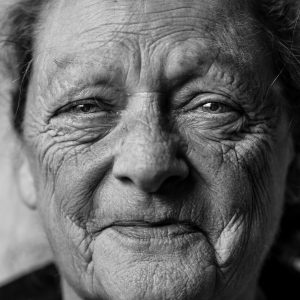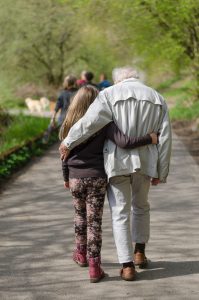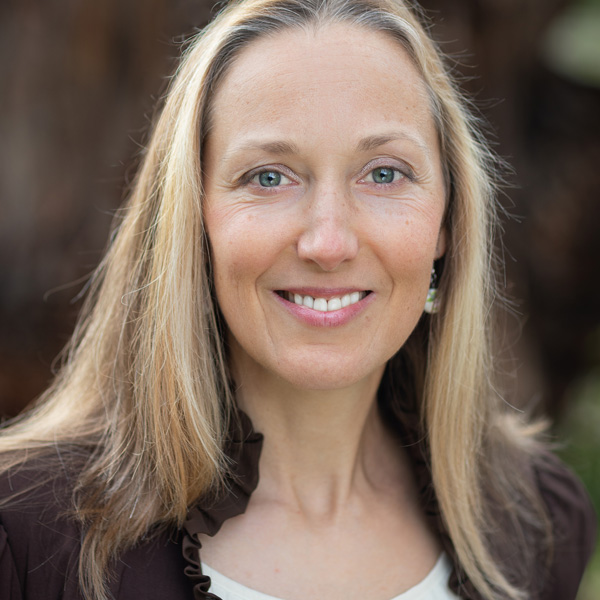 There’s one simple truth that we all must face at some point: we are constantly in the aging process. It started from the moment we were born, and it will continue until the day we leave this earth. In today’s world, youth is maximized while aging is minimized. We turn on the television or flip through a magazine and see ad campaigns for anti-aging face creams or serums that claim to make you look ten years younger.
There’s one simple truth that we all must face at some point: we are constantly in the aging process. It started from the moment we were born, and it will continue until the day we leave this earth. In today’s world, youth is maximized while aging is minimized. We turn on the television or flip through a magazine and see ad campaigns for anti-aging face creams or serums that claim to make you look ten years younger.
Despite how our society has tried to morph our view of aging, the aging process doesn’t have to be dreaded or looked upon as something negative. The aging process can be a beautiful thing if we choose to change our perspective. You can reach a full and meaningful purpose in any stage of life. If you’re struggling with these changes and want support in embracing this new season, a Christian counselor at Thousand Oaks Christian Counseling can help guide you toward a fulfilling and purposeful life.
In today’s article, we’re going to unpack the different types of aging, common signs of aging, how to stay healthy during the aging process, and what the Bible has to say about getting older.
The three different types of aging.
When you think of getting old, what age typically comes to mind? According to Merck Manual, people do not become elderly or old at any specific age. Traditionally, age sixty-five is thought of as the beginning of “old age,” but that’s only based on history, not biology.
A long time ago, Germany established that age sixty-five would be the age chosen for retirement. Since that time, most countries – America included – have adapted the same way of thinking. But just because someone turns 65 doesn’t mean that their biology does.
If you’ve ever resonated with the saying “age is just a number,” then you may find this fact to be true. Some folks who are aging don’t necessarily feel old, and that’s because there are technically three different types of aging.
Chronological age.
The first type of aging is chronological aging, the one with which we are probably the most familiar in the aging process. This is the type of aging that is marked by a number and the passing of time.
Biological age.
The second type of aging is biological aging. This can type of aging refers to changes in the body that commonly occur as people get older. For example, your hair will begin to turn gray and your joints may ache a little more than they used to. This is a sign that your body is getting older.
But everyone experiences the bodily changes that come with biological aging at different times and in different ways. This is why age really might just be a number and not a tell-tale sign of how old you actually are.
Psychological age.
The third and final type of aging is psychological aging. This refers to how you act, think, and feel. For example, an eighty-five-year-old woman may still like to travel, work, and participate in social events would be considered psychologically young.
Just because her chronological age is eighty-five, her brain is still sharp and she still seeks stimulation in the form of social events and activities. This would make her feel, think, and act younger than her chronological age.
The common signs of aging.
Aging truly begins at the cellular level. As we get older, our cells become less able to divide and the connective tissue between the cells becomes stiffer. As this process happens, the maximum functional capacity of many organs decreases. Because of this, we will begin to notice changes in our bodies and minds. Let’s take a look at some of the common signs of aging below.
 Bones, muscles, and joints.
Bones, muscles, and joints.
Aside from the gray hair, which is usually the first sign of aging, we may begin to feel your age in your bones, muscles, and joints. As we age, our bones become thinner and weaker, which can result in feeling stiff and less flexible. The cartilage in our bones begins to weaken and our muscle tissue becomes less bulky and strong. So, if you begin to feel stiff and sore in ways you didn’t before, it could possibly be a sign that you are getting older.
Skin.
Did you know that our skin is the largest organ in our body? It’s also the organ we can reference for signs of aging. As we get older, our skin may begin to show these signs of aging:
- Fine lines and wrinkles
- Dullness of skin
- Uneven skin tone
- Dry or flaky skin
- Blotchiness and age spots
- Rough skin texture
- Larger or more visible pores
Digestive system.
Another common sign of aging is developing issues with your digestive system. During the aging process, the movement of food through our digestive systems becomes slower. The stomach, liver, pancreas, and small intestine make smaller amounts of digestive fluid. This is why you may develop irritable bowel syndrome or other digestive issues.
Brain and nervous system.
As we age, the number of nerve cells in the brain and spinal cord decreases, and the number of connections between nerve cells decreases. This slows down our brains as we get older. This is why we may experience what is called brain fog. The slowing down of our minds is a clear sign that we are getting older.
How to stay healthy during the aging process.
Having a better understanding of the aging process can set us up for success as we get older. As stated earlier, the aging process doesn’t have to be a negative, dreaded thing. Yes, there will be transitions and changes as we get older, but we can lessen the shock of aging by creating healthy lifestyle patterns. Let’s explore some healthy lifestyle patterns in the next few sections of this article.
Healthy eating.
One of the most important things we can do to stay healthy during the aging process is choosing to eat healthy foods. As we age, our dietary needs may change but we still need to make sure we’re getting the required nutrients. Here are a few tips on how to create healthy eating habits:
- Choose foods that are packed with nutrients without a lot of extra unneeded calories. This includes fruits, vegetables, whole grains, lean meats, nuts, low-fat dairy, and seeds.
- Make sure to avoid foods that have empty calories like chips, candy, baked goods, soda, and alcohol.
- Pick foods that are low in cholesterol and fat.
- Stay hydrated by drinking up to 64 ounces of water per day.
Physical activity.
 Incorporating regular, daily physical activity will help us keep our weight under control as we age and may prevent chronic health conditions to which older people are susceptible. How much exercise we need depends on our age and health status and is different for everyone.
Incorporating regular, daily physical activity will help us keep our weight under control as we age and may prevent chronic health conditions to which older people are susceptible. How much exercise we need depends on our age and health status and is different for everyone.
Exercising also releases endorphins which make us feel happy. So not only is physical activity good for our bodies, but it’s good for our mental health as well.
Make sure to check with your doctor on what type of workout plan would be right for you.
Keep your mind active.
As discussed earlier, as we age, our minds slow down and naturally become less sharp. Some ways you can keep your mind active and your memory strong include:
- Reading
- Learning a new skill
- Word games
- Puzzles
Make your mental health a priority during the aging process.
No matter where we fall in the aging process, prioritizing our mental health is just as important as prioritizing our physical health. Working on our mental health will keep us psychologically younger and happier.
Here are a few activities you can do to prioritize your mental health:
- Meditation
- Relaxation techniques
- Exercising
- Practicing gratitude
- Find a counselor
Find a way to serve others.
Serving others in small or big way enriches your life, prevents from mental illnesses like depression and isolation, and increases meaning in your life. There are so many ways to help others. We might have opportunities in our life to help our grown-up children or our young grandchildren to minister into their lives and leave them a legacy and example for future generations of our love, patience, kindness, and generosity from time spent with them.
If we don’t have any family close by we could serve, we shouldn’t give up. There are so many programs in the community that would love our extended hand of help and support. There are programs at churches, senior centers, health care facilities, and non-profit organizations.
The opportunities are endless. When we step out of our comfort zone and join a mission we can find a new community for ourselves where we could fulfill our need to be accepted and to find new meaning and purpose for our lives. There is a bigger blessing in giving than receiving.
 Preventative screenings.
Preventative screenings.
It’s vital that we schedule regular checkups and health screenings as we age. According to the ACA, we are entitled to one free preventative screening a year. In order for these screenings to be free, they must be coded as “preventative,” which means we can’t go into the visit with any symptoms.
Preventative screenings help to prevent illness and therefore lead to a longer, happier life. It’s also an opportunity for us to make sure we’re taking the right medications for our bodies if any are needed.
Quit smoking and reduce alcohol intake.
Quitting smoking and reducing (or ceasing) our alcohol intake can lower our risk of many different types of cancers, as well as lung, liver, and heart diseases. Cutting out nicotine and alcohol just may prolong our lives.
What the Bible has to say about the aging process.
For those of us who have a relationship with God, knowing what He says about the aging process related to our purpose can drastically change our perspective on getting older. The Apostle Paul in Ephesians 2:10 reminds us that as long as we are on this earth, we have purpose: “For we are God’s handiwork, created in Christ Jesus to do good works, which God prepared in advance for us to do.” (NIV)
As we age, it’s important to remember that as Christ-followers, all of who we are belongs to God. He has created us with intention and purpose, and the reality is that our best days are never behind us because God is always with us.
We can hold firmly to the promise that as long as we are following God’s lead, there is purpose in our lives no matter what stage of the aging process we are in. It may look a bit different in this stage of life, but He has much to show us and much for us to do on behalf of His kingdom.
The way we live our lives as we age is vitally important to God. The Apostle Paul bears testament to this in his letter to Titus:
Likewise, teach the older women to be reverent in the way they live, not to be slanderers or addicted to much wine, but to teach what is good. Then they can urge the younger women to love their husbands and children, to be self-controlled and pure, to be busy at home, to be kind, and to be subject to their husbands, so that no one will malign the word of God.
Similarly, encourage the young men to be self-controlled. In everything set them an example by doing what is good. In your teaching show integrity, seriousness and soundness of speech that cannot be condemned, so that those who oppose you may be ashamed because they have nothing bad to say about us.” – Titus 2:3-8, NIV
One purpose God has for us as we age is to pour into the generation in front of us. We are called to be lights of wisdom and love for younger men and women. As we step into this calling of pouring into others, we are walking in obedience to God’s design for community.
Rather than becoming removed or even irritated at the next generation, what if we chose to humble ourselves and share with them the many years of experience we have as a way to propel them forward and spread the love of Christ?
The truth is, that as the aging process ensues, God is still present and working in our lives. He still has much to show us and much for us to do. And there are many people He’s waiting for us to disciple and mentor.
Talk to a counselor about the aging process.
If the unknowns and uncertainties of the aging process stress you out, know that you are not alone. Getting older is a transition and a big change, but it is also a beautiful thing. If you want to come up with strategies on how to healthily move through the aging process, then don’t hesitate to reach out to me or another one of our counselors in the online directory of Thousand Oaks Christian Counseling.
We would be thrilled to provide you with a safe, loving environment where you can process these changes.
“Playing with Grandma”, Courtesy of Rod Long, Unsplash.com, CC0 License; “Leafs from a Stump”, Courtesy of Rob Wicks, Unsplash.com, CC0 License; “Elderly Lady”, Courtesy of Glen Hodson, Unsplash.com, CC0 License; “Walking with Grandpa”, Courtesy of Janosch Lino, Unsplash.com, CC0 License
-
Kristina Banaitis: Author
I am humbled and honored to be a vessel of God to serve others as a therapist. As a licensed counselor, my passion is to provide Christian counseling to individuals, families, and groups struggling with a wide variety of concerns, including anxiety,...
-
Kate Motaung: Curator
Kate Motaung is the Senior Writer, Editor, and Content Manager for a multi-state company. She is the author of several books including Letters to Grief, 101 Prayers for Comfort in Difficult Times, and A Place to Land: A Story of Longing and Belonging...
DISCLAIMER: THIS ARTICLE DOES NOT PROVIDE MEDICAL ADVICE
Articles are intended for informational purposes only and do not constitute medical advice; the content is not intended to be a substitute for professional medical advice, diagnosis, or treatment. All opinions expressed by authors and quoted sources are their own and do not necessarily reflect the opinions of the editors, publishers or editorial boards of Stone Oak Christian Counseling. This website does not recommend or endorse any specific tests, physicians, products, procedures, opinions, or other information that may be mentioned on the Site. Reliance on any information provided by this website is solely at your own risk.






